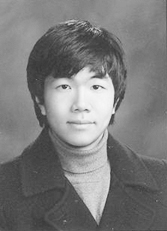 Beginning in March, I have been seriously concerned since I saw the budget for our department, The Chungbuk National University Press, that was prepared by the Head Office yearly. Even though we were included in the unified CUBS (Broadcasting system), there was no consideration for that, and we received budget that was smaller than that of last year's. At this time of national financial unrest, considering that CBNU's tuition was frozen, it might be an inevitable decision being in the Head Office's shoes. I felt that university presses were being pressured by a transient phenomenon.
Beginning in March, I have been seriously concerned since I saw the budget for our department, The Chungbuk National University Press, that was prepared by the Head Office yearly. Even though we were included in the unified CUBS (Broadcasting system), there was no consideration for that, and we received budget that was smaller than that of last year's. At this time of national financial unrest, considering that CBNU's tuition was frozen, it might be an inevitable decision being in the Head Office's shoes. I felt that university presses were being pressured by a transient phenomenon.Working as Chief Editor, I have seen many new reporters enter and quit soon. Some of their departures were caused by personal problems, but the most important reason was related to our hard working environment. They could not stand the relatively needy circumstance and regretted seeing our efforts ignored.
It is a clear current of these times that the influence of the press is being weakened because of the remarkable developments of multimedia and the Internet. Our department is also promoting video broadcasting for the future. CBT has endeavored to survive in this competitive current. CBT focused on off-campus topics to appeal to our readers' sentiments, such as traveling for cultural reporting and interviewing some prominent persons.
In the golden age of the university press, the power of the newspaper was mighty. A number of newspapers kept their office staff all night for publishing extra issues. The papers were the exclusive sources for students to know their campus news. The university press had great influence on politics and could perform as a rallying point for young intellectuals who longed for democratization under the military dictatorship. However, society has changed. Entering the transition period, young Koreans are concerned with many other difficult matters like the tight job market. The role of the press has become outdated.
I visited China recently. There, Starbucks and McDonald's are popular. The reason for such popularity is not due to the lack of hamburgers and coffee from before. They like to consume the American culture. We will also have to be the press which delivers culture as like them. As social needs are changing, newspapers also have to change. Since CBT is an English paper, fortunately, we occupy an important position. Through the international language, CBT can report on various cultures all over the world. I hope that CBT becomes a hub of interaction between CBNU students and the world.


 All
All Column
Column






 이본
이본











